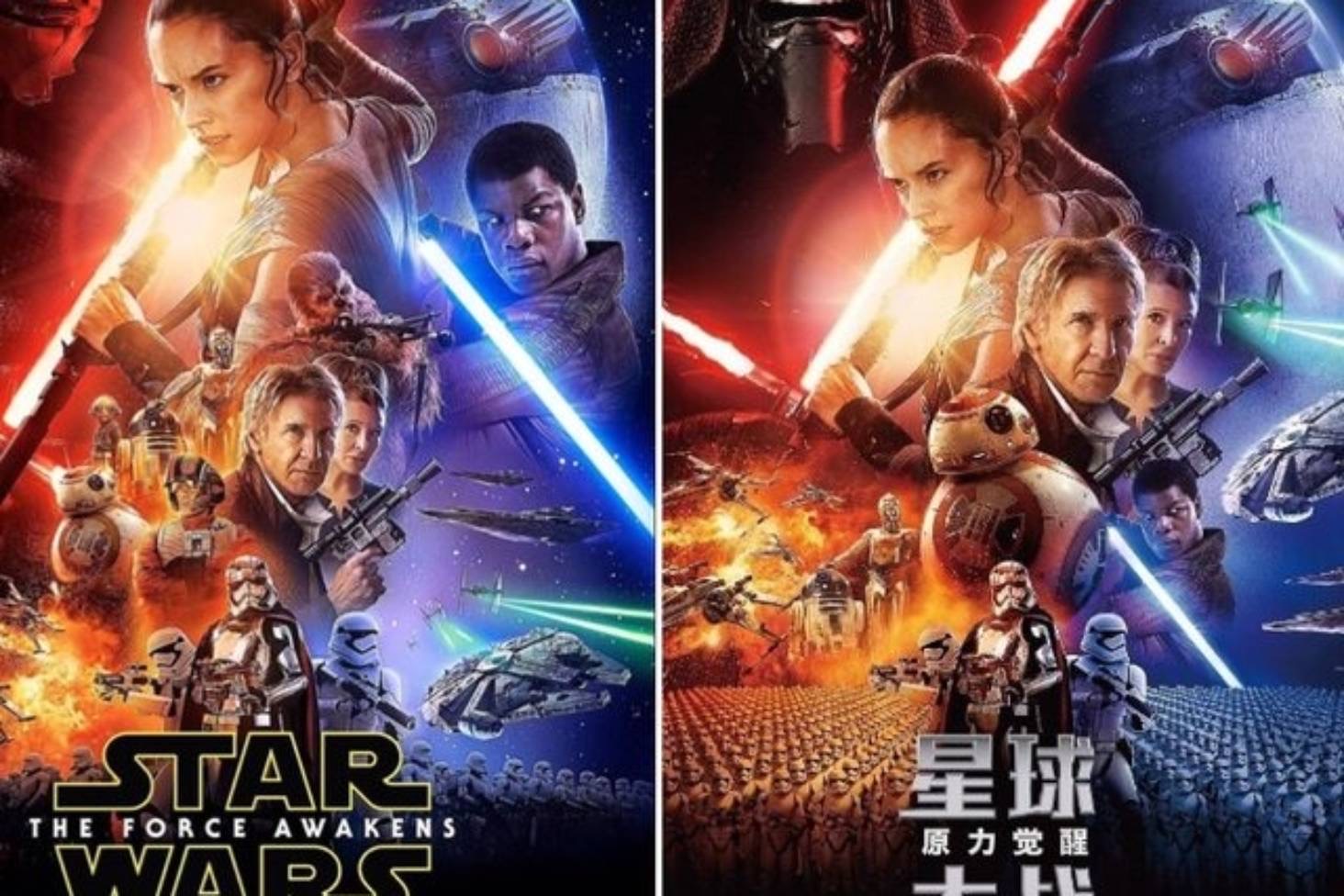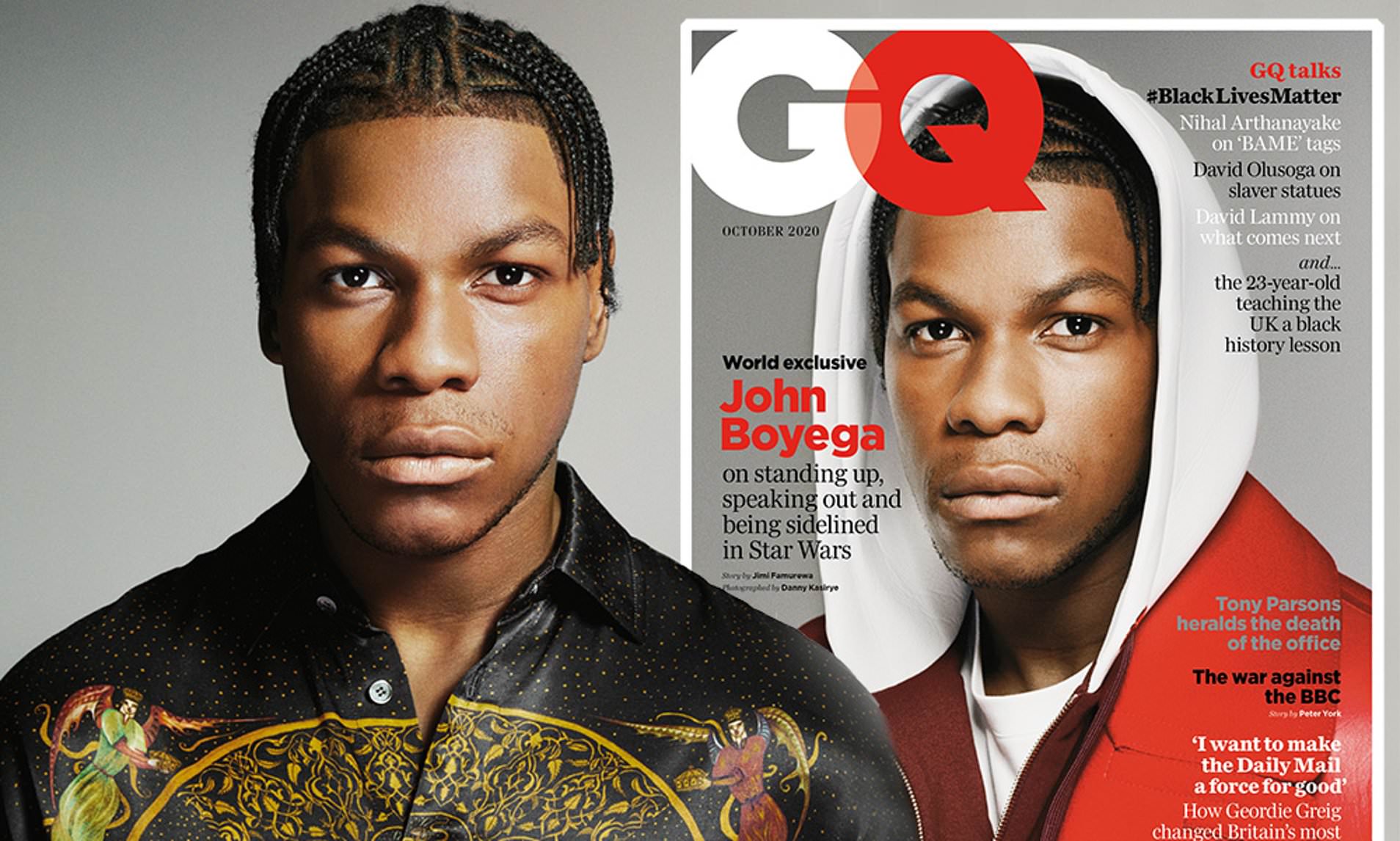In an interview with British GQ magazine published on Sept. 2, 2020, actor John Boyega candidly criticized how The #Disney Company treated himself and his character of Finn in the #StarWars sequel trilogy. In other words, #racism marred his time spent in a galaxy far, far away. Boyega said,
“You get yourself involved in projects and you’re not necessarily going to like everything. [But] what I would say to Disney is do not bring out a black character, market them to be much more important in the franchise than they are and then have them pushed to the side. It’s not good. I’ll say it straight up.”
In the first sequel trilogy film (“Star Wars: #TheForceAwakens”, directed by J.J. Abrams), Boyega played Finn, a former Stormtrooper who wielded a lightsaber, as a major driving force of the narrative. But in the following two films (“Star Wars VIII: #TheLastJedi” and “Star Wars IX: #TheRiseOfSkywalker”), Disney & #LucasFilm gave more space to Rey (Daisy Ridley) and Kylo Ren (Adam Driver), and sidelined Finn.
But John Boyega wasn’t only referring to himself, he was also talking about the other people of color in the cast. Namely, Naomi Ackie, Kelly Marie Tran and Oscar Isaac: who he feels suffered the same treatment. Boyega acknowledges that some people will say he’s “crazy” or “making it up”, but the reordered character hierarchy of “The Last Jedi” was particularly hard to take. Boyega went on to say the following in the interview:
“Like, you guys knew what to do with Daisy Ridley, you knew what to do with Adam Driver. You knew what to do with these other people, but when it came to Kelly Marie Tran, when it came to John Boyega, you know fuck all. So what do you want me to say? What they want you to say is, ‘I enjoyed being a part of it. It was a great experience…’ Nah, nah, nah. I’ll take that deal when it’s a great experience. They gave all the nuance to Adam Driver, all the nuance to Daisy Ridley. Let’s be honest. Daisy knows this. Adam knows this. Everybody knows. I’m not exposing anything.”
In an August, 2018 essay published in the New York Times, Kelly Marie Tran, who is Vietnamese-American and was introduced in “The Last Jedi” before being sidelined in “The Rise of Skywalker”, wrote about the her own ordeal with racism, saying she had gone “down a spiral of self-hate” due to all the harassment she had received:
“It wasn’t their words, it’s that I started to believe them. Their words seemed to confirm what growing up as a woman and a person of color already taught me: that I belonged in margins and spaces, valid only as a minor character in their lives and stories.”
“[Society] taught me I existed only in the background of their stories, doing their nails, diagnosing their illnesses, supporting their love interests—and perhaps the most damaging—waiting for them to rescue me. And for a long time, I believed them.”
When John Boyega’s face first appeared from beneath a stormtrooper helmet in the first released trailer for “The Force Awakens”, racist hashtags like #BoycottStarWarsVII suddenly appeared on social media. Boyega acknowledged the boycotts in the British GQ magazine directly, saying that he was
“the only cast member who had their own unique experience of that franchise based on their race.… It makes you angry with a process like that. It makes you much more militant; it changes you. Because you realize, I got given this opportunity, but I’m in an industry that wasn’t even ready for me. Nobody else in the cast had people saying they were going to boycott the movie because [they were in it]. Nobody else had the uproar and death threats sent to their Instagram DMs and social media, saying, ‘Black this and Black that and you shouldn’t be a stormtrooper.’ Nobody else had that experience. But yet people are surprised that I’m this way. That’s my frustration.”
Then there was Disney’s official poster for “The Force Awakens” released in China. While it was very similar to the one released in the U.S., Boyega’s image as Finn, which was prominent in the U.S. poster, was severely shrunk in the Chinese one.

“Star Wars VII: The Force Awakens” Posters released in the U.S. (Left) and China (Right).
John Boyega’s words in the interview are an indictment on the systemic mistreatment of black characters in blockbuster films, saying,
“They’re always scared. They’re always fricking sweating.”
Boyega also viewed the return of director J.J. Abrams to “The Rise of Skywalker” as a salvage job, saying,
“Everybody needs to leave my boy alone. He wasn’t even supposed to come back and try to save your shit.”
While Boyega acknowledged that “Star Wars” was an “amazing opportunity” and a “stepping stone” that has precipitated so much good in his life and career, he was palpably exhilarated to be finally saying all this. To dismiss his words as merely professional bitterness or paranoia is to miss the point. His primary motivation is to show the frustrations and difficulties of trying to operate within what can feel like a permanently rigged system. He is trying to let you know what it feels like to have a boyhood dream ruptured by the toxic realities of the world.

John Boyega
References


You must be logged in to post a comment.